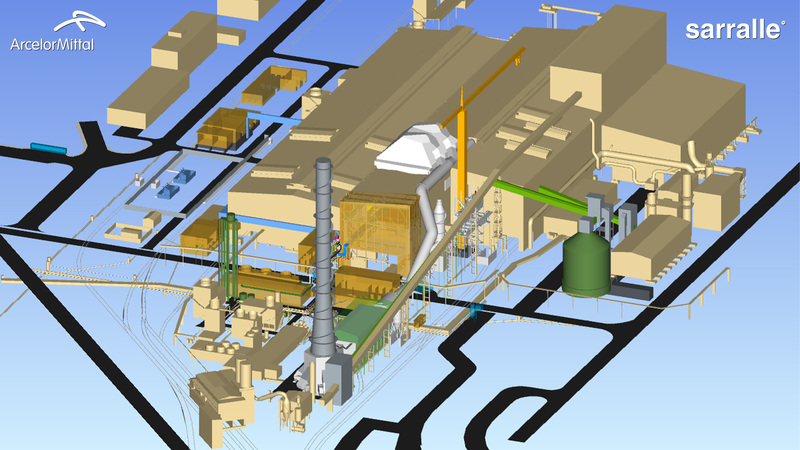ArcelorMittal Asturias has signed a contract with industrial engineering company Sarralle, to build a new electric arc furnace (EAF) in Gijón, as part of the company’s decarbonisation plan for Spain.
Civil works on the site will start early next year. Once the new, 1.1 million tonne EAF is operational – which is expected in the final quarter of 2025 – the site will be able to switch to producing low carbon-emissions steel for the long products sector, specifically rails and wire rod, making the site highly competitive, in particular for sectors with stringent carbon criteria for public procurement contracts.
Currently, these products are made via the blast furnace route. In addition, a de-dusting system and waste heat recovery unit will be installed by Sarralle, as part of the project and in order to maximise energy efficiency in the new EAF.
The project is part of ArcelorMittal Europe’s commitment to reduce CO2 emissions by 35% by 2030.
“This is an important part of the decarbonisation programme for the company’s steelmaking operations in Spain. We would therefore like to thank all the stakeholders for their ongoing cooperation on this project”, said Philippe Meyran, CEO ArcelorMittal Asturias, at a signing ceremony held with Sarralle, on 23 November 2023.
Elías González, CEO of Sarralle, said: “This is a very special project for us. It is the first decarbonisation project in Spain, which will be carried out with Spanish technology. It constitutes a very important step for the future of the steel industry in Spain, oriented to very high added value products”.
Jordi Torné, CEO ArcelorMittal Europe – Long Products in ArcelorMittal Asturias, commented: ”This project places the Long Products business in Asturias at the forefront of decarbonisation. The installation of this state-of-the-art technology will allow us to produce high added value rails and wire rods, building a sustainable future for our activity, while operating to the highest safety standards”.
The European Union’s Sustainable and Smart Mobility Strategy forecasts that by 2030, both high-speed rail traffic and freight traffic will increase by 50%; by 2050, high-speed rail traffic is expected to have tripled, and freight traffic will have increased by 100%. The new facility in Gijon will be well-placed to support increasing demand for rails, in particular rails made from low carbon-emissions steel, under the EU Green Deal.



